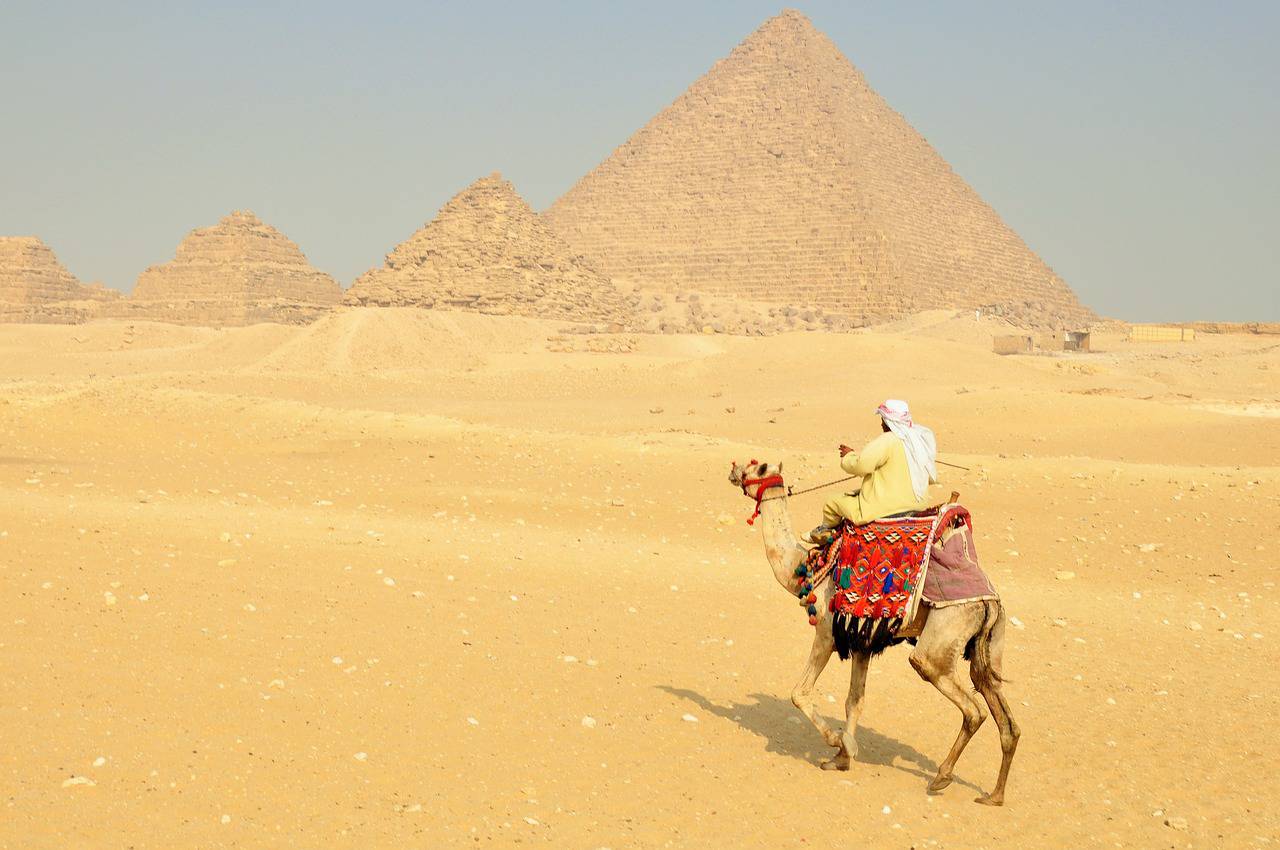Blanketed with thematically standardized blonde-colored sand dunes, geometrically flawless pyramid designs that have withstood their ground for centuries, and highly sacred lofty temples, Egypt is truly an exquisite paradise. One thing that can be said about visiting Egypt is that, it might just unleash your inner archaeological student!
Let’s commence with this country's rich history since that shapes its tourism from what one perceives now. Egypt has caught a glimpse of a myriad of empires right from 1570 BCE, ranging from the Memphis dynasty to the Alexandria dynasty, cushioning the history books with some cumbersome content! Apart from that aspect, this metropolis is sheathed with elegant mosques draped with Islamic architecture, majestic minarets that would require you to lift your head up, and a plethora of semi-tropical beaches with their azure waters and lively coasts. Literally, what isn’t there to like about this nirvana?
According to religious scriptures, Egypt is home to the sanctified River Nile, which is a huge tourist hotspot here. The river is a popular mode of travel in order for tourists to observe archaic monuments, along with also experiencing the mere surrealism of the holistic experience. Furthermore, there are other activities tourists can partake in to check things off their bucket lists, including scuba-diving near the turquoise shores, going dune-bashing, embracing the local culture and savoring the authentic Egyptian cuisine.
The food of a country is one of its major defining factors, and Egypt does not fall behind in this cuisine race! With its scrumptious Tamiya, and the fan favourite, Baba Ghanoush dip, tasting these Egyptian delicacies is like reaching cloud nine! The next time you visit this absolutely fantastic country, make sure to satisfy your food palate with these finger-licking food items.
The history of Egypt, carved in hieroglyphs on the walls of its monumental temples and tombs, tells of a saga of pharaohs and gods, of conquests and defeats, of wealth and power, and of a society so complex and sophisticated that it seems almost alien to our modern eyes.
The story of ancient Egypt begins in the prehistoric era, when tribes of hunters and gatherers roamed the fertile delta and the valley of the Nile, gathering reeds and papyrus to weave baskets and boats. Gradually, these early settlers learned to tame the waters of the river, irrigate their fields and gardens, and domesticate animals. They built mud huts and shrines and worshiped a pantheon of deities that embodied the forces of nature and the mysteries of life and death.
Over time, these small communities grew into larger kingdoms, ruled by powerful chieftains and priests who claimed divine authority and wielded considerable influence over their subjects. The first dynasties of pharaohs emerged around 3100 BCE, uniting Upper and Lower Egypt under a centralized monarchy and creating a stable and prosperous society. The pharaohs built colossal temples and pyramids, which served as both symbols of their power and as tombs for their bodies, which were embalmed and preserved for eternity.
Given its strategic location as a crossroads for trade between Africa, Asia, and Europe, the country's economy was dependent on the cultivation and exportation of agricultural products. Egyptian merchants traversed the Red Sea and the Mediterranean, trading raw materials and luxury products for exotic goods like ivory, gold, ebony, and spices.
Their culture was supremely diversified and rich, including art, science, literature, religion, and philosophy. Artistically stunning jewelry, ceramics, sculptures, and paintings were created by their craftsmen that represented scenes from daily life or from the myths and stories of their gods. They also established a system of writing, using hieroglyphs, hieratic, and demotic scripts, which allowed them to record their history, laws, religion, and literature.
Over the centuries, the country was invaded and ruled by various foreign powers like the Persians, the Greeks, the Romans, the Arabs, the Turks, and finally, the British. Each struggle brought new influences and challenges to Egyptian society. The Republican Egypt was established in 1953.
The top tourist attractions in Egypt are:
- The Giza Necropolis - The Great Sphinx - Ruins of Memphis - Thebes - Karnak - The Valley of the Kings - Suez Canal
Best time to visit Egypt is in Summers between May and August when the maximum temperature goes to 36 degrees, and the lowest goes to 23 degrees.
Currency of Egypt is Egyptian Pound (EGP), is also denoted as LE
Alexandria is the prettiest town in Egypt
7- It needs around 10 days to explore 5 major cities of Explore
- It is feasible to tour Egypt on your own. Please note: Egypt's tourism police will verify your schedule before you arrive if you're traveling solo or with a small group.
- A cruise is ideal for the leisure traveler since it allows them to see more of a region (like the Nile) than they could in a car in the same amount of time. - Those looking for more freedom and flexibility on their vacation will like a land-based excursion, which typically entails staying in a hotel and taking things at a more leisurely pace.
 Best time to visit
Best time to visit Language Spoken
Language Spoken Weather
Weather